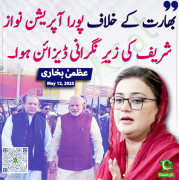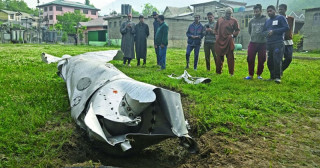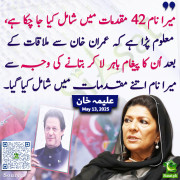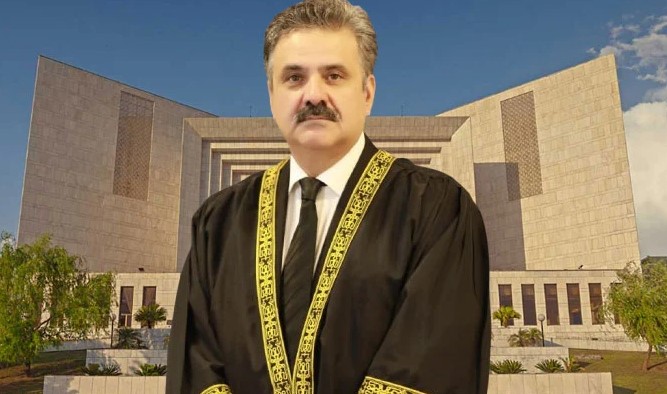You are using an out of date browser. It may not display this or other websites correctly.
You should upgrade or use an alternative browser.
You should upgrade or use an alternative browser.
FBR facing record shortfall of Rs485 bn
- Thread starter RajaRawal111
- Start date
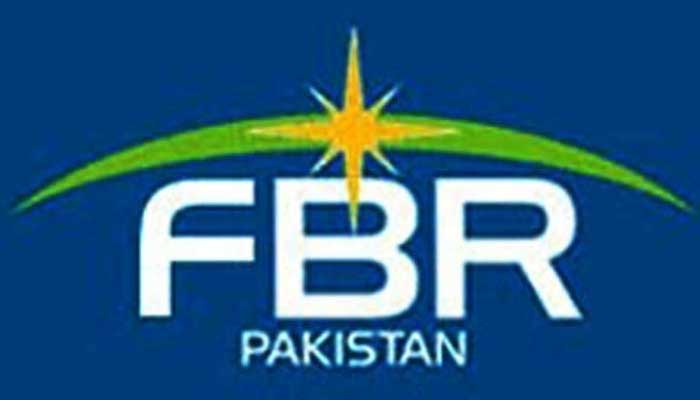
In an alarming development, the government has projected highest-ever tax shortfall being faced by the FBR in its whole history since inception as this increasing shortfall might touch Rs485.9 billion till end June 2019.
In absolute figures, the FBR is heading towards the highest ever tax shortfall of its history with increasing threat that the country’s budget deficit might inch towards 7 percent of GDP for the current fiscal year against 6.6 percent of GDP recorded last year under PML-N led regime. Therefore, the PTI-led government is all set to make new records on fiscal front in the current fiscal year.
According to official projections shared with the government disclosed on Sunday that the declining trend in FBR’s revenue collection might continue in remaining four months (March-June) period of the current fiscal year and it was feared that the tax shortfall might stand at Rs252.7 billion in the next four months. The FBR had already faced shortfall of Rs233.2 billion in first eight months (July-Feb) period and after projected shortfall of Rs252.7 billion in the next four months, the overall shortfall might touch historic peak of Rs485.9 billion during first year of PTI-led regime.
The analysis of all major taxes done and shared with the government disclosed that overall tax shortfall on account of Income Tax, Sales Tax and Federal Excise Duty (FED) was projected at Rs434 billion during the whole current fiscal year while the shortfall in Customs Duty collection was anticipated at Rs50 billion so the overall shortfall might touch Rs485.9 billion till June 30, 2019.
Income Tax: Seven reasons have been cited as major causes of revenue shortfall in the current fiscal year.
Reduced Tax Rates on Salary: In Finance Act 2018, the rate of tax on salary income was drastically reduced and the threshold was increased from Rs0.4 million to Rs1.2 million in one go. These changes brought substantial decrease in withholding taxes collected through various government and private withholding agents. The revenue impact of these changes caused revenue loss of Rs32.4 billion so far in the first eight months (July-Feb) period of the current fiscal year and it is estimated that total revenue loss for whole fiscal year would stand at Rs50 billion for 2018-19.
Telecom Sector: The Supreme Court of Pakistan issued verdict against withholding tax imposed on telecom subscribers resulting in massive loss of revenue under section 236 of Income Tax Ordinance 2001 up to the range of Rs34 billion during first eight months so far. Total estimated loss from telecom sector is estimated at around Rs55 billion during the whole financial year.
Reduced Government Spending: Owing to slashed PSDP (Public Sector Development Programme) the revenue collection under section 153 of the Income Tax Ordinance 2001 from contractors, suppliers and service providers reduced significantly. The so far revenue shortfall stood at Rs54 billion in first eight months period of the current fiscal year and total expected loss on this head would stand at Rs80 billion in the whole financial year.
Import Compression: In the wake of reduction in imports, the tax deduction under section 148 of the Income Tax Ordinance slashed by Rs11 billion during first eight months of the current fiscal year and total revenue loss would be estimated to go up to Rs16 billion till end June 2019.
Abolition of Tax on Cash withdrawal from filers: Owing to recent changes in section 231A of the Income Tax Ordinance, the expected revenue shortfall was estimated at Rs5 billion in four months (March-June) period of the current fiscal year.
Banking Sector Reduced Profitability: The reduced profitability of commercial banks resulted in reduction of tax on dividend income and its revenue impact for first eight months stood at Rs16 billion. The annual loss is estimated to be around Rs25 billion.
Implication of Payment under Amnesty Scheme: In the last fiscal year 2017-18, the payment of taxes under Amnesty Scheme stood at Rs120 billion which was one time phenomena and the same is not expected this year.
Sales Tax and FED: During first eight months from July 1, 2018 to Feb 2019, the sales tax domestic collection (net) stood at Rs373.15 billion against envisaged target of Rs407.1 billion. However, in the budget 2019, the sales tax rates were reduced as a considered policy decision resulting in relief of Rs38.1 billion in POL products, fertilizer, feed gas for fertilizer and restriction in car booking by non-filers.
Petroleum Products: As a policy decision to facilitate consumption of LNG, import of Furnace Oil (FO) has been restricted. The local refineries do not have sufficient storage capacity to store FO and reportedly had to reduce refining of crude oil in tandem with their supplies of FO. The official data indicates that there is almost 29 percent reduction in consumption of High Speed Diesel (HSD) & FO from 9.1 MT (2017) to 6.5 MT in 2018. The consumption of Motor Spirit (MS) is almost the same. The average sales tax rate during March to June 2018 were around 16 percent and 25.2 percent on MS and HSD respectively which are now at standard rate of 17 percent and expected to remain the same till end June 2019. The collection on all POL products declined by 21 percent as it fetched Rs131.4 billion in first eight months of the current fiscal against Rs166.5 billion in the same period of the last financial year. With stagnant growth in MS, the quantitative decline in consumption of High Speed Diesel and difference in average sales tax rate from 25.2 percent to 17 percent will result in less collection from POL sector by Rs17 billion in remaining four months (March-June) period of the current fiscal year. The sales tax on imports has so far faced shortfall of Rs29 billion up to Feb 2019 and it is expected that total shortfall on this account might touch Rs44 billion till June 2019.
Natural Gas: Policy measures have resulted in decrease in revenue collection during first eight months and the same trend is expected to persist in remaining four months of the current fiscal year.
The reduced rate of GST from 17 percent (+3 percent value addition tax) to 12 percent on import of LNG and local supply thereof.
The reduction in rate of sales tax to 2 percent on all fertilizers and consequential reduction in sales tax to 5 percent on supply of natural gas to fertilizer plants for use as feed stock to avoid accumulation of input tax.
Sales Tax on LNG imported by fertilizer manufacturers for use as feed stock is exempted in Finance Bill 2018.
There is waiver of value addition tax @ 3 percent chargeable on import of LNG under Rule 58B of Sales Tax Special Procedures 2007.
The FBR has so far faced negative growth of 26.5 percent in sales tax collection on natural gas as the FBR collected Rs14.1 billion in first eight months so far in the current fiscal year against collection of Rs19.2 billion in the same period of the last financial year. An additional shortfall to the tune of Rs2.6 billion has been estimated in the remaining period of the current fiscal year.
Automobile and Motorcycles: The sales tax collection on motor vehicles and motor cycles declined by Rs3 billion and Rs1 billion respectively in first eight months so far.
Federal Excise Duty (FED) Domestic: FED at import stage is collected on import of edible oil. The domestic base is related to tobacco, cement, airlines, beverages, aerated water etc. The FED collection stood at Rs129 billion so far in eight months of the current fiscal against Rs114 billion in the same period of last year, registering a positive growth of 13 percent.
Customs Duty: The FBR has so far collected Rs444 billion in shape of Customs Duty (CD) in first eight months of the current fiscal year and they will have to collect Rs291 billion more in remaining four months (March-June) period to display the envisaged target of Rs735 billion on its board on June 30, 2019. The FBR is expected to collect Rs241 billion in remaining four months against the desired target of Rs291 billion indicating that it is going to face shortfall of Rs50 billion on account of customs duty collection owing to compressed imports.
https://www.thenews.com.pk/print/445309-fbr-facing-record-shortfall-of-rs485-bn
Why do you not realize that it is the same FBR. Of course there are problems with it. The govt. has categorically stated that they are not satisfied with the performance of FBR and may have to start a new institution. The failure of FBR is the failure of the system left behind by the previous governments. PTI has given them a fair chance but they have failed to deliver so a new FBR may be the only solution. Do not portray as if the current govt. completely revamped the FBR and yet it faces shortfall.
??
?????
Lol. I am sure IK will manage to do it. The only problem is that it will take time. Just like he aimed to become the PM of the country and got ridiculed for 22 years and now he is there. Similarly, he has just started the repair work and he will InshaAllah manage to reach the destination. You my friend are good enough for jest and ridicule only.
back to the future
Chief Minister (5k+ posts)
Frankly speaking the reasons given for shortfall seems to be lame dick
Shifting the blame not giving solid reason for fbr bad performance
Shifting the blame not giving solid reason for fbr bad performance
Wake Up Pakistan
Chief Minister (5k+ posts)
Paid PTI social media activist
YAR MUJAY PAY KAR MAI PAIN DI SIRI KA ACTIVIST BAN JATA HOU
CHAAL DONE?
fbrinsider
Politcal Worker (100+ posts)
In an alarming development, the government has projected highest ever tax shortfall being faced by the FBR in its whole history since inception as this increasing shortfall might touch Rs485.9 billion till end June 2019.
In absolute figures, the FBR is heading towards the highest ever tax shortfall of its history with increasing threat that the country’s budget deficit might inch towards 7 percent of GDP for the current fiscal year against 6.6 percent of GDP recorded in last year under PML-N led regime. Therefore, the PTI-led government is all set to make new records on fiscal front in the current fiscal year.
According to official projections shared with the government disclosed on Sunday that the declining trend in FBR’s revenue collection might continue in remaining four months (March-June) period of the current fiscal year and it was feared that the tax shortfall might stand at Rs252.7 billion in next four months. The FBR had already faced shortfall of Rs233.2 billion in first eight months (July-Feb) period and after projected shortfall of Rs252.7 billion in next four months, the overall shortfall might touch historic peak of Rs485.9 billion during first year of PTI-led regime.
The analysis of all major taxes done and shared with the government disclosed that overall tax shortfall on account of Income Tax, Sales Tax and Federal Excise Duty (FED) was projected at Rs434 billion during the whole current fiscal year while the shortfall in Customs Duty collection was anticipated at Rs50 billion so overall shortfall might touch Rs485.9 billion till June 30, 2019.
Income Tax: Seven reasons have been cited as major causes of revenue shortfall in the current fiscal year.
Reduced Tax Rates on Salary: In Finance Act 2018, the rate of tax on salary income was drastically reduced and the threshold was increased from Rs0.4 million to Rs1.2 million in one go. These changes brought substantial decrease in withholding taxes collected through various government and private withholding agents. The revenue impact of these changes caused revenue loss of Rs32.4 billion so far in first eight months (July-Feb) period of the current fiscal year and it is estimated that total revenue loss for whole fiscal year would stand at Rs50 billion for 2018-19.
Telecom Sector: The Supreme Court of Pakistan issued verdict against withholding tax imposed on telecom subscribers resulting in massive loss of revenue under section 236 of Income Tax Ordinance 2001 up to the range of Rs34 billion during first eight months so far. Total estimated loss from telecom sector is estimated at around Rs55 billion during the whole financial year.
Reduced Government Spending: Owing to slashed PSDP (Public Sector Development Programme) the revenue collection under section 153 of the Income Tax Ordinance 2001 from contractors, suppliers and service providers reduced significantly. The so far revenue shortfall stood at Rs54 billion in first eight months period of the current fiscal year and total expected loss on this head would stand at Rs80 billion in the whole financial year.
Import Compression: In the wake of reduction in imports, the tax deduction under section 148 of the Income Tax Ordinance slashed by Rs11 billion during first eight months of the current fiscal year and total revenue loss would be estimated to go up to Rs16 billion till end June 2019.
Abolition of Tax on Cash withdrawal from filers: Owing to recent changes in section 231A of the Income Tax Ordinance, the expected revenue shortfall was estimated at Rs5 billion in four months (March-June) period of the current fiscal year.
Banking Sector Reduced Profitability: The reduced profitability of commercial banks resulted in reduction of tax on dividend income and its revenue impact for first eight months stood at Rs16 billion. The annual loss is estimated to be around Rs25 billion.
Implication of Payment under Amnesty Scheme: In the last fiscal year 2017-18, the payment of taxes under Amnesty Scheme stood at Rs120 billion which was one time phenomena and the same is not expected this year.
Sales Tax and FED: During first eight months from July 1, 2018 to Feb 2019, the sales tax domestic collection (net) stood at Rs373.15 billion against envisaged target of Rs407.1 billion. However, in the budget 2019, the sales tax rates were reduced as a considered policy decision resulting in relief of Rs38.1 billion in POL products, fertilizer, feed gas for fertilizer and restriction in car booking by non-filers.
Petroleum Products: As a policy decision to facilitate consumption of LNG, import of Furnace Oil (FO) has been restricted. The local refineries do not have sufficient storage capacity to store FO and reportedly had to reduce refining of crude oil in tandem with their supplies of FO. The official data indicates that there is almost 29 percent reduction in consumption of High Speed Diesel (HSD) & FO from 9.1 MT (2017) to 6.5 MT in 2018. The consumption of Motor Spirit (MS) is almost the same. The average sales tax rate during March to June 2018 were around 16 percent and 25.2 percent on MS and HSD respectively which are now at standard rate of 17 percent and expected to remain the same till end June 2019. The collection on all POL products declined by 21 percent as it fetched Rs131.4 billion in first eight months of the current fiscal against Rs166.5 billion in the same period of the last financial year. With stagnant growth in MS, the quantitative decline in consumption of High Speed Diesel and difference in average sales tax rate from 25.2 percent to 17 percent will result in less collection from POL sector by Rs17 billion in remaining four months (March-June) period of the current fiscal year. The sales tax on imports has so far faced shortfall of Rs29 billion up to Feb 2019 and it is expected that total shortfall on this account might touch Rs44 billion till June 2019.
Natural Gas: Policy measures have resulted in decrease in revenue collection during first eight months and the same trend is expected to persist in remaining four months of the current fiscal year.
The reduced rate of GST from 17 percent (+3 percent value addition tax) to 12 percent on import of LNG and local supply thereof.
The reduction in rate of sales tax to 2 percent on all fertilizers and consequential reduction in sales tax to 5 percent on supply of natural gas to fertilizer plants for use as feed stock to avoid accumulation of input tax.
Sales Tax on LNG imported by fertilizer manufacturers for use as feed stock is exempted in Finance Bill 2018.
There is waiver of value addition tax @ 3 percent chargeable on import of LNG under Rule 58B of Sales Tax Special Procedures 2007.
The FBR has so far faced negative growth of 26.5 percent in sales tax collection on natural gas as the FBR collected Rs14.1 billion in first eight months so far in the current fiscal year against collection of Rs19.2 billion in the same period of the last financial year. An additional shortfall to the tune of Rs2.6 billion has been estimated in the remaining period of the current fiscal year.
Automobile and Motorcycles: The sales tax collection on motor vehicles and motor cycles declined by Rs3 billion and Rs1 billion respectively in first eight months so far.
Federal Excise Duty (FED) Domestic: FED at import stage is collected on import of edible oil. The domestic base is related to tobacco, cement, airlines, beverages, aerated water etc. The FED collection stood at Rs129 billion so far in eight months of the current fiscal against Rs114 billion in the same period of last year, registering a positive growth of 13 percent.
Customs Duty: The FBR has so far collected Rs444 billion in shape of Customs Duty (CD) in first eight months of the current fiscal year and they will have to collect Rs291 billion more in remaining four months (March-June) period to display the envisaged target of Rs735 billion on its board on June 30, 2019. The FBR is expected to collect Rs241 billion in remaining four months against the desired target of Rs291 billion indicating that it is going to face shortfall of Rs50 billion on account of customs duty collection owing to compressed imports.
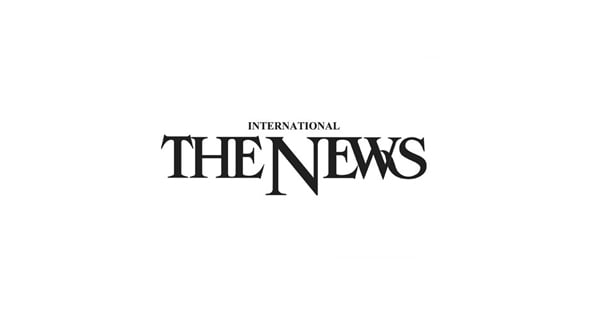
 www.thenews.com.pk
www.thenews.com.pk
In absolute figures, the FBR is heading towards the highest ever tax shortfall of its history with increasing threat that the country’s budget deficit might inch towards 7 percent of GDP for the current fiscal year against 6.6 percent of GDP recorded in last year under PML-N led regime. Therefore, the PTI-led government is all set to make new records on fiscal front in the current fiscal year.
According to official projections shared with the government disclosed on Sunday that the declining trend in FBR’s revenue collection might continue in remaining four months (March-June) period of the current fiscal year and it was feared that the tax shortfall might stand at Rs252.7 billion in next four months. The FBR had already faced shortfall of Rs233.2 billion in first eight months (July-Feb) period and after projected shortfall of Rs252.7 billion in next four months, the overall shortfall might touch historic peak of Rs485.9 billion during first year of PTI-led regime.
The analysis of all major taxes done and shared with the government disclosed that overall tax shortfall on account of Income Tax, Sales Tax and Federal Excise Duty (FED) was projected at Rs434 billion during the whole current fiscal year while the shortfall in Customs Duty collection was anticipated at Rs50 billion so overall shortfall might touch Rs485.9 billion till June 30, 2019.
Income Tax: Seven reasons have been cited as major causes of revenue shortfall in the current fiscal year.
Reduced Tax Rates on Salary: In Finance Act 2018, the rate of tax on salary income was drastically reduced and the threshold was increased from Rs0.4 million to Rs1.2 million in one go. These changes brought substantial decrease in withholding taxes collected through various government and private withholding agents. The revenue impact of these changes caused revenue loss of Rs32.4 billion so far in first eight months (July-Feb) period of the current fiscal year and it is estimated that total revenue loss for whole fiscal year would stand at Rs50 billion for 2018-19.
Telecom Sector: The Supreme Court of Pakistan issued verdict against withholding tax imposed on telecom subscribers resulting in massive loss of revenue under section 236 of Income Tax Ordinance 2001 up to the range of Rs34 billion during first eight months so far. Total estimated loss from telecom sector is estimated at around Rs55 billion during the whole financial year.
Reduced Government Spending: Owing to slashed PSDP (Public Sector Development Programme) the revenue collection under section 153 of the Income Tax Ordinance 2001 from contractors, suppliers and service providers reduced significantly. The so far revenue shortfall stood at Rs54 billion in first eight months period of the current fiscal year and total expected loss on this head would stand at Rs80 billion in the whole financial year.
Import Compression: In the wake of reduction in imports, the tax deduction under section 148 of the Income Tax Ordinance slashed by Rs11 billion during first eight months of the current fiscal year and total revenue loss would be estimated to go up to Rs16 billion till end June 2019.
Abolition of Tax on Cash withdrawal from filers: Owing to recent changes in section 231A of the Income Tax Ordinance, the expected revenue shortfall was estimated at Rs5 billion in four months (March-June) period of the current fiscal year.
Banking Sector Reduced Profitability: The reduced profitability of commercial banks resulted in reduction of tax on dividend income and its revenue impact for first eight months stood at Rs16 billion. The annual loss is estimated to be around Rs25 billion.
Implication of Payment under Amnesty Scheme: In the last fiscal year 2017-18, the payment of taxes under Amnesty Scheme stood at Rs120 billion which was one time phenomena and the same is not expected this year.
Sales Tax and FED: During first eight months from July 1, 2018 to Feb 2019, the sales tax domestic collection (net) stood at Rs373.15 billion against envisaged target of Rs407.1 billion. However, in the budget 2019, the sales tax rates were reduced as a considered policy decision resulting in relief of Rs38.1 billion in POL products, fertilizer, feed gas for fertilizer and restriction in car booking by non-filers.
Petroleum Products: As a policy decision to facilitate consumption of LNG, import of Furnace Oil (FO) has been restricted. The local refineries do not have sufficient storage capacity to store FO and reportedly had to reduce refining of crude oil in tandem with their supplies of FO. The official data indicates that there is almost 29 percent reduction in consumption of High Speed Diesel (HSD) & FO from 9.1 MT (2017) to 6.5 MT in 2018. The consumption of Motor Spirit (MS) is almost the same. The average sales tax rate during March to June 2018 were around 16 percent and 25.2 percent on MS and HSD respectively which are now at standard rate of 17 percent and expected to remain the same till end June 2019. The collection on all POL products declined by 21 percent as it fetched Rs131.4 billion in first eight months of the current fiscal against Rs166.5 billion in the same period of the last financial year. With stagnant growth in MS, the quantitative decline in consumption of High Speed Diesel and difference in average sales tax rate from 25.2 percent to 17 percent will result in less collection from POL sector by Rs17 billion in remaining four months (March-June) period of the current fiscal year. The sales tax on imports has so far faced shortfall of Rs29 billion up to Feb 2019 and it is expected that total shortfall on this account might touch Rs44 billion till June 2019.
Natural Gas: Policy measures have resulted in decrease in revenue collection during first eight months and the same trend is expected to persist in remaining four months of the current fiscal year.
The reduced rate of GST from 17 percent (+3 percent value addition tax) to 12 percent on import of LNG and local supply thereof.
The reduction in rate of sales tax to 2 percent on all fertilizers and consequential reduction in sales tax to 5 percent on supply of natural gas to fertilizer plants for use as feed stock to avoid accumulation of input tax.
Sales Tax on LNG imported by fertilizer manufacturers for use as feed stock is exempted in Finance Bill 2018.
There is waiver of value addition tax @ 3 percent chargeable on import of LNG under Rule 58B of Sales Tax Special Procedures 2007.
The FBR has so far faced negative growth of 26.5 percent in sales tax collection on natural gas as the FBR collected Rs14.1 billion in first eight months so far in the current fiscal year against collection of Rs19.2 billion in the same period of the last financial year. An additional shortfall to the tune of Rs2.6 billion has been estimated in the remaining period of the current fiscal year.
Automobile and Motorcycles: The sales tax collection on motor vehicles and motor cycles declined by Rs3 billion and Rs1 billion respectively in first eight months so far.
Federal Excise Duty (FED) Domestic: FED at import stage is collected on import of edible oil. The domestic base is related to tobacco, cement, airlines, beverages, aerated water etc. The FED collection stood at Rs129 billion so far in eight months of the current fiscal against Rs114 billion in the same period of last year, registering a positive growth of 13 percent.
Customs Duty: The FBR has so far collected Rs444 billion in shape of Customs Duty (CD) in first eight months of the current fiscal year and they will have to collect Rs291 billion more in remaining four months (March-June) period to display the envisaged target of Rs735 billion on its board on June 30, 2019. The FBR is expected to collect Rs241 billion in remaining four months against the desired target of Rs291 billion indicating that it is going to face shortfall of Rs50 billion on account of customs duty collection owing to compressed imports.

FBR facing record shortfall of Rs485.9b
ISLAMABAD: In an alarming development, the government has projected highest ever tax shortfall being faced by the FBR in its whole history since inception as this increasing shortfall might touch...
Last edited by a moderator:
fbrinsider
Politcal Worker (100+ posts)
We have been predicting all along that if Jahanzeb Khan is kept on as Chairman FBR, the revenue shortfall will cross Rs. 500 billion
insouciant
Minister (2k+ posts)
What's your grudge with Jahanzeb Khan? Shame on you for putting the liability on him when it is clearly stated even in the article that shortfall is because of policy which falls directly under the Ministry of Finance. And MoF is taking those policy decisions for inevitable reforms. And has measures in place to balance the reduced taxes with spendings.
Infact the shortfall coming from indirect taxation is a relief for the poor public who wouldn't be paying those taxes in the form of mobile phone top up taxes etc!! That money is directly going in the pockets of the public!
I'd blame FBR if the shortfall is because of the collection issues!! If you don't know this simple thing, you definitely can't be someone who is an "insider" in FBR!!
I'm sorry to say your propaganda is BUSTED!!
Infact the shortfall coming from indirect taxation is a relief for the poor public who wouldn't be paying those taxes in the form of mobile phone top up taxes etc!! That money is directly going in the pockets of the public!
I'd blame FBR if the shortfall is because of the collection issues!! If you don't know this simple thing, you definitely can't be someone who is an "insider" in FBR!!
I'm sorry to say your propaganda is BUSTED!!
We have been predicting all along that if Jahanzeb Khan is kept on as Chairman FBR, the revenue shortfall will cross Rs. 500 billion
Last edited:
sab_tamasha_hai
Minister (2k+ posts)
Try to read the article... It's not very hard to understandOn a serious not buzdar shud be kicked put and asad umar should be considered the boot as well.
Islamabadiya
Chief Minister (5k+ posts)
Don’t forget SheikhooAsad Qaiser , Asad Umer aur Buzdar jaisi team ho to mulk kaa Allah hi hafiz hai
Urdu speaking
Minister (2k+ posts)
Imran khan resigned it now ...thats the solution and get shabaz sharif as a pm
pti 56
Minister (2k+ posts)
sureImran khan resigned it now ...thats the solution and get shabaz sharif as a pm
islamabadi
Minister (2k+ posts)
Inn basterds ko macro economy ki ABC nahi aati....when you depress the entire economy then how are you going to collect taxes? Less economic activity translates into LESS trickle down effects and less taxes paid and collected. This PTI basterds have made 4 policy changes regarding car buying by filers and 2 changes for real estate. There are 200 countries in the world....name 1 country which bans 99% of the population from buying a car. Yes PTI banned 99% of the population and its only 15 days ago that they lifted the ban when they realized that they are loosing money in terms of sales tax/withholding tax/excice duty/customs on imports of vehicles/lost revenues from dealerships. Now you have still blocked 99% of the population from buying a house over50 million. Name one country in the world which taxes people from withdrawing their own money or for making paiements of goods or services...Pakistan. As a businessman....I have stopped making deposits into banks and keep cash OUTSIDE the banking system and there are probably millions like me. The PTI bastersds just recently lifted the tax for filers only...not for non filers....which means this jagga tax is collected from 99% of the people of the country. The people in FBR are recruited from CSS not from private sector....and there you have another problem. These are bureaucrats who dont really give their 100% and are more interested in their corruption. At the same time when you devalue your currency twice in 2 months and make your currency worthless you are driving people towards committing corruption.....who devaluated the currency twice? PTI and also the caretakers. result is in front of you.
Last edited:
islamabadi
Minister (2k+ posts)
When he said 100 arab...he means 100 men from arabic countries....they are arab men...so far 100 arab have not been detained yet.....once he has 100 arabs tubh un arbi countries k mun p bhi marey ga...??
?????
fbrinsider
Politcal Worker (100+ posts)
What's your grudge with Jahanzeb Khan? Shame on you for putting the liability on him when it is clearly stated even in the article that shortfall is because of policy which falls directly under the Ministry of Finance. And MoF is taking those policy decisions for inevitable reforms. And has measures in place to balance the reduced taxes with spendings.
Infact the shortfall coming from indirect taxation is a relief for the poor public who wouldn't be paying those taxes in the form of mobile phone top up taxes etc!! That money is directly going in the pockets of the public!
I'd blame FBR if the shortfall is because of the collection issues!! If you don't know this simple thing, you definitely can't be someone who is an "insider" in FBR!!
I'm sorry to say your propaganda is BUSTED!!
If you had studied even basic economics, you would know that economic growth is a function of C+I+G (total spending on private consumption, investment and government spending). So if people get relief in one sector (like cheaper petrol, or no tax on mobile phones, or lower tax on salaries), they either spend that amount on other goods and services or save it. For example, if someone saves, say Rs1000 a month on filling his car with petrol, he either uses that amount to buy something else, or keeps it in his bank account (from where it is lent out). Similarly, if a business gets cheaper raw material, it either reduces its price (due to competition) or increases the profits paid to its owners or shareholders.
In short, the money keeps circulating. So why were the alternate uses not taxed? There was absolutely no reason for the revenue to fall for the reasons given, except that FBR failed to come up with a strategy to properly collect tax from the alternate uses of the money.
The reason I disparage Jahanzeb Khan is that all these factors were very clear since last year. But he failed to develop a strategy to address them. He kept aloof, failed to develop a team, and remained more interested in developing his plan to get a $400 million loan from the World Bank, rather than making administrative improvements. He put incompetent people in key positions and is now coming up with lame excuses for his dismal performance. No leadership skills, no vision, just greed after projects.
-
-
-
-
سیاست کی اندھی محبت۔۔۔۔۔سہیل وڑائچ
5 | FORUM -
کنول شوزب علیمہ خان کے خلاف میدان میں
20 | خبریں -
Imran Khan's sons break their silence
27 | FORUM
-
-
-
کنول شوزب علیمہ خان کے خلاف میدان میں
20 | خبریں
-
© Copyrights 2008 - 2025 Siasat.pk - All Rights Reserved. Privacy Policy | Disclaimer|

